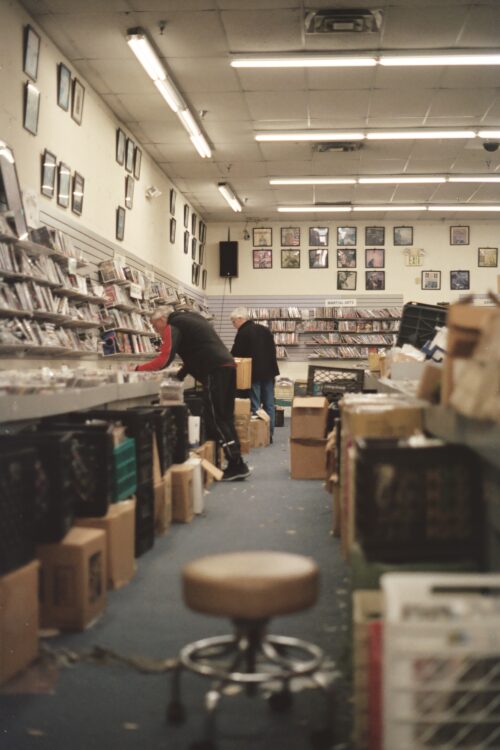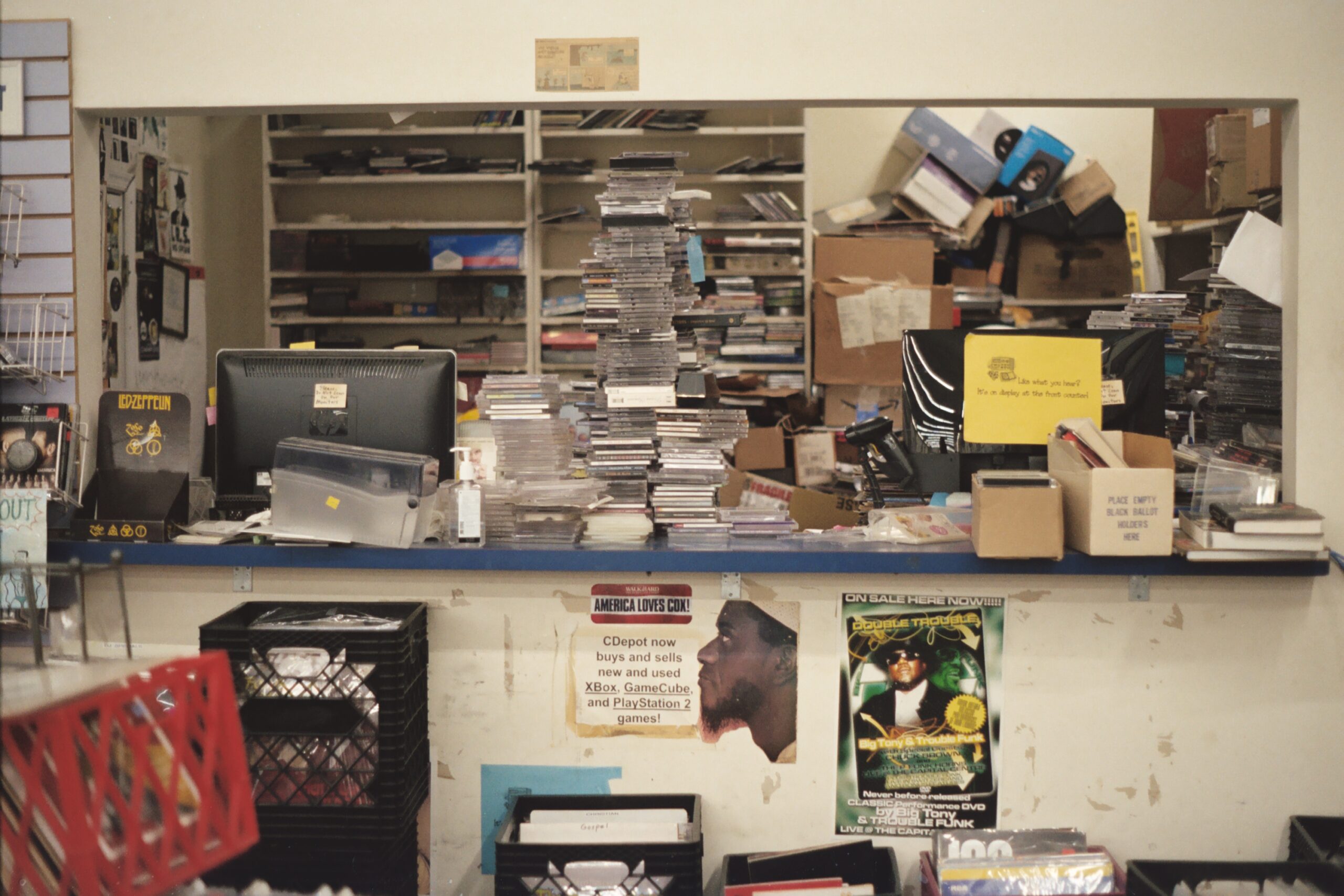When CDepot first opened its doors in College Park, in the early 1990s, it was easy to miss among the Route 1 environs of auto dealerships and strip malls. But over the years, the store expanded into its current location and became a venerated destination for crate-digging aficionados, University of Maryland students and passersby just looking to kill some time.
Today, the timeworn shop selling discs of often-uncertain origin still has character written all over it. With stacks of media spilling out of bins, tattered signs announcing weekly specials and cash discounts, and a carpet that has admittedly seen better days, CDepot boasts an eclectic collection spanning eras and formats. It is one of the only establishments in the D.C. region where collectors can still score a VHS tape, a Laserdisc and a 78 RPM record under one roof.
But not for long.

Last month, the store announced via Instagram that it would close its doors by the end of February, as the Baltimore Avenue corridor undergoes yet another cycle of development and reinvention.
CDepot’s ownership told CapitalBop that a shrinking customer base and rising costs were the primary reasons for the closure, while declining to provide a direct quote for publication.
In recent years, vinyl records have taken up a majority of CDepot’s in-store real estate. But as the name suggests, the store hails from an era when CDs were the unquestioned future of physical music media, and their sale was a cutthroat business.
Chad Koper worked at one of CDepot’s early rivals, the nearby location of the Kemp Mill Music chain; he remembers some buzz when CDepot first opened their doors. “These guys were not only brand-new to Route 1, but they had new stuff, different stuff, too,” Koper recalled. “People would come into Kemp Mill and see a brand-new CD for 12, 13 bucks. But then CDepot would have it — maybe they would even have a sealed promo copy, still in plastic, that I couldn’t even get my hands on as an assistant manager.”
“You would walk in there and see these promo CDs, probably from the Kemp Mill warehouse in Beltsville or the distributors at Tower [Records],” Koper said, referring to promotional copies of records that are typically distributed to vendors with special stickers forbidding resale. “My old manager used to snatch all the promos before we could get our hands on them, and then a few weeks later you’d see them down at CDepot. They didn’t deal in store credit. Strictly cash.”
The store gained a reputation for buying used media for cash, and its history tracked the changes in the industry of the 1990s and 2000s. Business boomed in the early years, allowing the store to expand and move into its present-day location at the busy intersection of Route 1 and University Boulevard. (UMD’s student newspaper, The Diamondback, was on the story. “Running out to get the new Oasis CD?” began a 1997 article. “Well, if you’re heading out to The CDepot, you’ll find that College Park’s local used CD store has moved.”)
Business was not always smooth, however, and the store ran into some legal trouble in 2013 when, after attempting to establish an online sales presence on Amazon, CDepot was ordered by a federal court in California to stop reselling unauthorized DVDs.
But the store persisted for over three decades on the strength of its reputation as an unassuming destination for a wide range of used media and stereo equipment. “Anyone wishing for a truly comprehensive music library can build one for peanuts at CDepot,” wrote Jeffrey Bukowski in a 1993 Diamondback column. “I guess this makes us now three-quarters a college town.”
Such remarks call back to a time when the University of Maryland was regarded by many as a commuter school. College Park’s highway-dominated landscape presented a considerable obstacle for students who wanted to venture off campus. Since then, the surrounding area has densified as the university has grown, the streets becoming more pedestrian-friendly and transit-oriented. In many respects, these are markers of College Park’s successful attempts to remake itself as a more urbanized, student-oriented community.

But while better bus service and bike lanes have arrived, customers have dwindled. The challenges of maintaining a used record store in 2025 are formidable, with the advent of streaming services and the decline of physical media.
Today, there are only a few other places in the area where collectors can still lose themselves in the stacks. As the sun sets on this local institution, Koper reminisced on the good days of selling CDs on Route 1.
“They had a good business model for a while,” Koper said. “When they were in their inception, it was the golden age of record stores, of CD-based businesses. It was a really cool time.”








Join the Conversation →